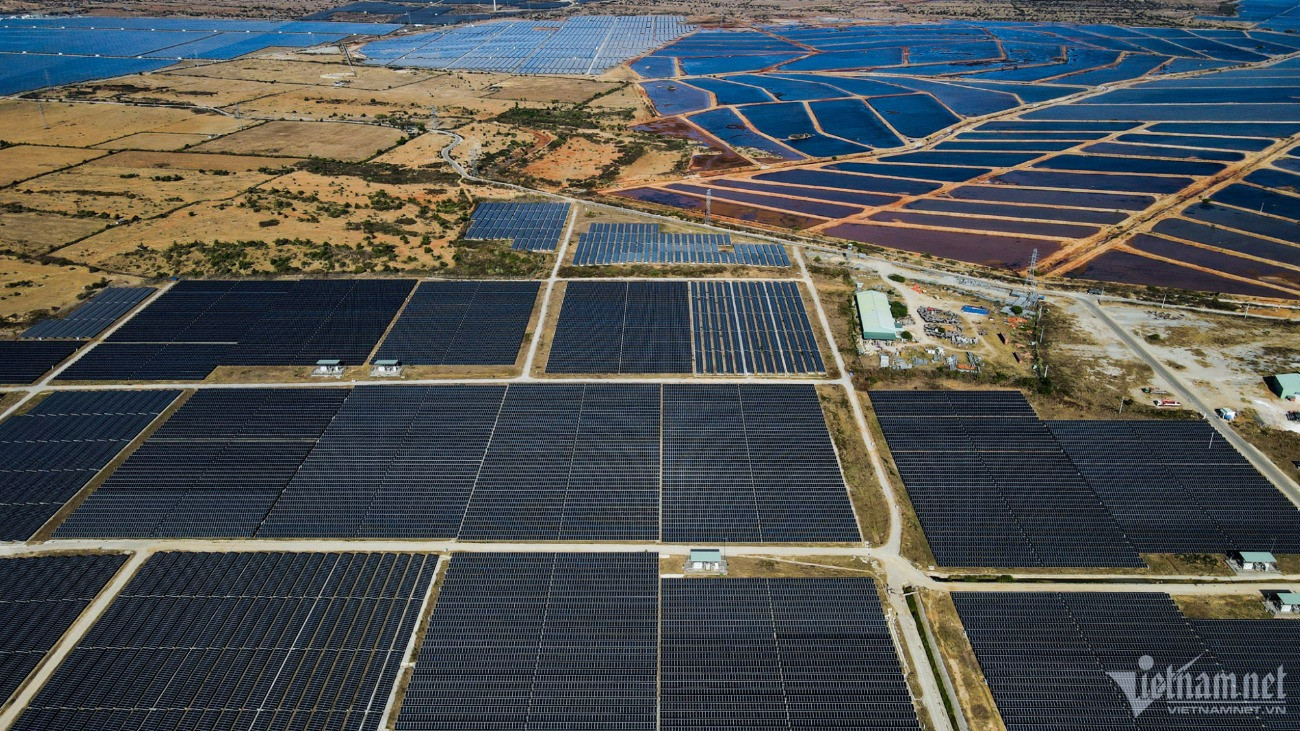
The draft has been described by analysts as "enigmatic" because this would be a waste of national resources when northern cities and provinces are facing serious electricity outages.
Analysts say the ban is illogical and isn't in line with the eighth national electricity development plan (Plan 8) which has just been approved. Under Plan 8, Vietnam strives to have 50 percent of office buildings and 50 percent of people’s homes using self-produced and self-consumed rooftop solar power by 2030. The systems will not be connected to the national grid.
The Ministry of Industry and Trade (MOIT), the agency that drew up the draft, said there is no need to encourage rooftop solar power system installation, because if just 12.5 percent of people’s homes in the country install rooftop solar power systems (1kwh per household in 2023), this would be enough to fulfill the plan to increase solar power capacity for the entire development period (2021-2030).
The rooftop solar power development encouragement emphasizes households, or in other words, 50 percent of Vietnamese households to produce and consume electricity themselves with total capacity just 1.5 times higher than the capacity of the Hoa Binh Hydropower Plant.
What are the benefits to enterprises?
The ministries and branches believe that it would be better to include others to install rooftop solar power systems. These would include schools, hospitals, production intensification works, farms, warehouses associated with residential houses, headquarters which have production and business activities, business and trade facilities, airports, seaports and stations.
However, in reply, MOIT gave only a short explanation that the ministry simply observed the instructions by Deputy Prime Minister Tran Hong Ha in Notice No 219/TB-VPCP in naming the subjects to install rooftop solar power systems.
Prof Le Chi Hiep from the HCM City University of Technology agreed with the policy that rooftop solar power systems are self-produced and self-consumed works, which don’t connect to the national grid, but stressed that policy implementation may fail if it cannot be interpreted well and written in detail.
“If Vietnam only intends to develop household-run rooftop solar power systems, it will be of no use. To develop the national electricity network, it is necessary to think of expanding the scale of rooftop solar power systems in industrial zones (IZs),” he said. “We also have to think of building a scheme which links enterprises in the same IZs."
Le Hai Hung from the Hanoi University of Science and Technology (HUST) also commented that MOIT’s idea on rooftop solar power development is unacceptable and unsuitable to Plan 8.
“Plan 8 encourages self-production and self-consumption works. If so, why should we prohibit solar power works on the roofs of factories in IZs?” he said.
He stressed that MOIT should accept all subjects that want to install rooftop solar power systems. The current institutional regime for rooftop solar power is depriving businesses from legitimate opportunities.
“We want to have a great concert, but we don’t prepare the seats for a large audience,” he commented.
An investor said MOIT needs to immediately make scientific assessments about rooftop solar power potential in IZs and the capability of the infrastructure to calculate the maximum rooftop solar power scale for every region, so as to set clear policies for solar power development. If the development is reasonable, this will benefit Electricity of Vietnam (EVN), the people, and the state as well.
Luong Bang